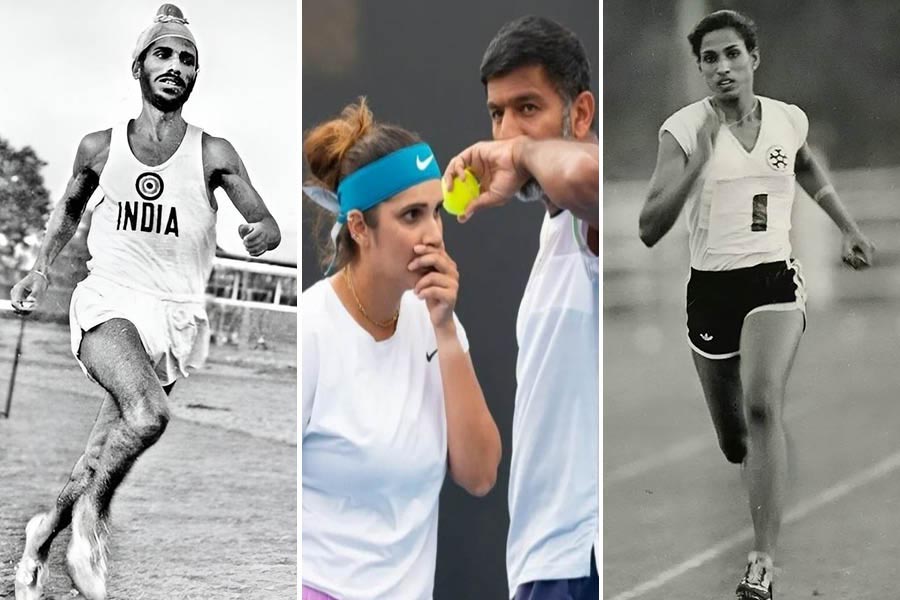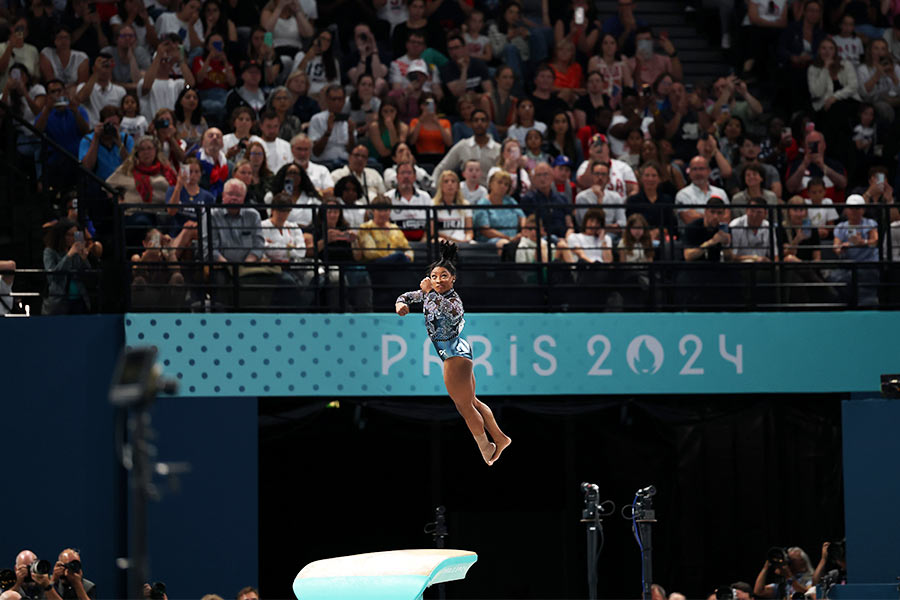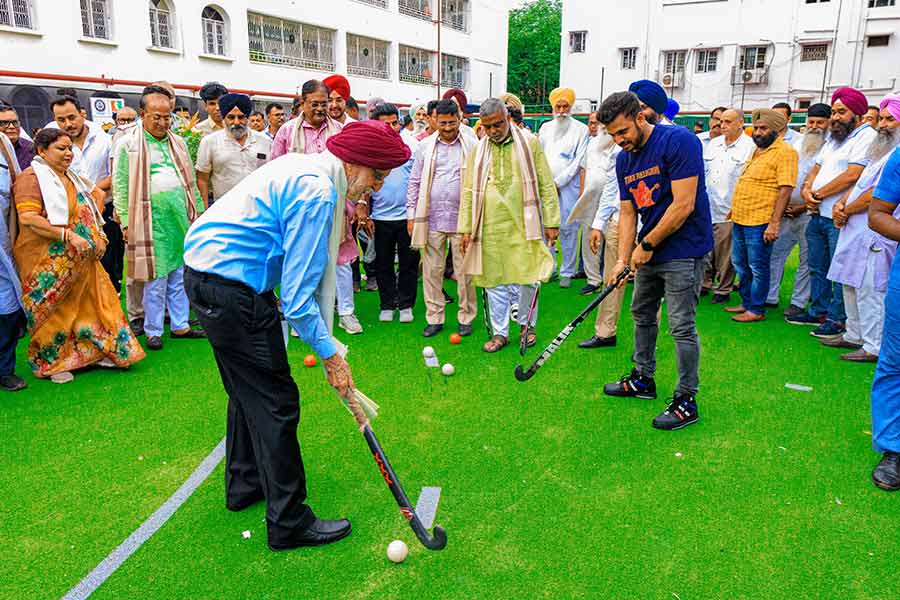The greatest sporting show on the planet is underway in Paris. Athletes from all the over world have congregated at the French capital to vie for the honour of a podium finish and proclaim themselves as the best in their respective fields. Indian athletes are also giving it their all to earn laurels for the country and shooter Manu Bhaker has created history by becoming the first Indian post-Independence to win two medals in the same edition of the Games.
One certainly hopes her stupendous show inspires other members of the Indian contingent to achieve greatness. Last Monday, Bhaker’s compatriot, Arjun Babuta, came very close to getting his moment in the spotlight – narrowly missing out on a podium finish in the men’s 10-metre air rifle event, eventually securing the fourth place. Having been in medal contention throughout the event, it was a most heart-breaking end. At 25, Arjun has time on his hands and he can surely take inspiration from Manu Bhaker who overcame a disappointing show at Tokyo three years ago to achieve glory at Paris.
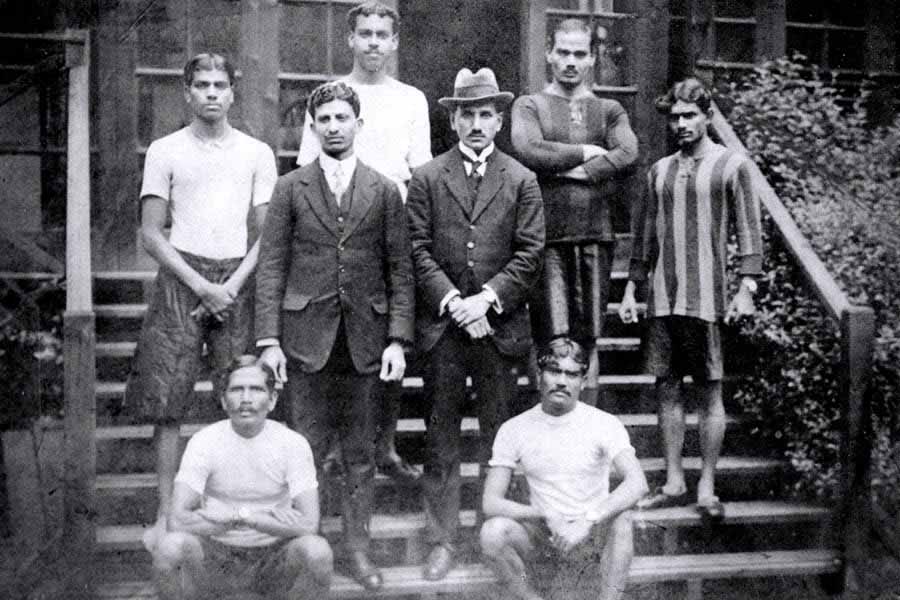
Kolhapur wrestler Dinkarrao (Randhir) Shinde (standing extreme left in top row) as a part of the Indian Olympic team in 1920 Wikipedia
Interestingly, India’s Olympic adventures have invariably included a cruel tryst with the fourth place – the most galling of experiences for any sportsperson with the hopes of a podium finish dashed in the last hurdle. It started 104 years ago, at the 1920 Antwerp Games – the first time an Indian contingent travelled to take part in the Olympic Games.
Among the six sportspersons was Dinkarrao* Shinde – a wrestler from Kolhapur who took part in the featherweight event of freestyle wrestling at Antwerp. Not many would have expected a medal from the Indians but Shinde put up an impressive show, ending in the fourth position. He may have missed out on a medal but he did come away with his pride intact.
Fast forward 32 years to Helsinki – 1952. Once again, it was wrestling and featherweight division. And once again, it was the same story. India’s representative, Keshav Mangrave, lost to Josiah Hansen from the USA in the pre-final round to be denied a podium finish. The action shifts now to Melbourne for the 1956 Olympics.
And this time, it was a collective heartbreak. At Helsinki, the Indian football team was humiliated 1-10 by Yugoslavia. For coach S.A. Rahim, Melbourne was an acid test. India was drawn against the mighty Magyars from Hungary. But in the aftermath of the Hungarian Revolution, the Hungarian football team withdrew and India got a bye to the quarter-final where a glorious chapter of Indian football unfolded. A hat-trick by Neville D’Souza saw India thrash hosts Australia 4-2. Unfortunately, in the semi-final, India came up against their old nemesis, Yugoslavia, and was beaten 1-4.
The disappointment flattened the side and they lost the bronze medal play-off tamely to Bulgaria (0-3). Four years later at Rome came possibly the most heartbreaking of India’s saga with the 4th place. The great Flying Sikh, Milkha Singh, was in the form of his life and had beaten all the top contenders for 400-metre sprint except Otis Davis and the whole nation was expectant of a medal. At 250 metres, Singh was in the lead when he committed a fatal mistake.
Thinking he won’t be able to sustain his intensity, Singh decided to slow down a tad bit and turned back to check on his rivals. In that split second delay, (Otis) Davis, Carl Kaufmann and Malcolm Spence passed him, resulting in a photo-finish. Milkha Singh’s timing of 45.6 seconds was better than the Games record of 45.9 seconds. Unfortunately for him, Davis and Kaufmann clocked 44.9 seconds and Spence finished just 0.1 second ahead of Singh. It was heartbreak of epic proportion – a regret that Milkha Singh could never let go.
At Munich in 1972, two Indian wrestlers: Prem Nath and Sudesh Kumar both finished an agonising fourth. But it was at Los Angeles in 1984 that a modern version of Milkha Singh’s heartbreak was repeated. P.T. Usha – the ‘queen of Indian track & field’ – carried the hopes of the entire nation.
In pre-Olympic trials for 400-metre hurdles, she beat American champion Judi Brown and set a new Commonwealth record in the semi-final. In the final, however, Usha missed out on a bronze medal by the narrowest of margins – 1/100th of a second. Destiny had yet again played a cruel trick. In the new millennia, the trend did not break.
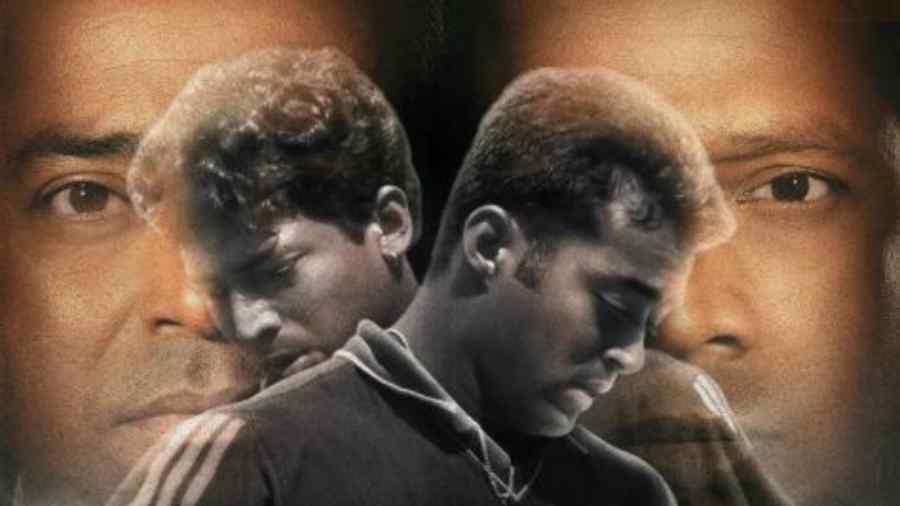
In 2004, Leander Paes and Mahesh Bhupathi played their hearts out but ended up just short in a titanic contest: 6-7 (5-7), 6-4, 14-16 TT Archives
At Athens in 2004, Leander Paes and Mahesh Bhupathi put aside their differences and combined for one more shot at glory. The Indian pair recorded straight set wins in their first three matches and squared off in the semis against Germans, Nicholas Kiefer and Rainier Schuttler. Both the Germans were singles specialists and Lee-Hesh went into it as favourites. However, they ended up suffering a shocking straight set loss. There was one last chance, the bronze medal play-off. Against Croatian pair of Mario Ančić and Ivan Ljubičić, the Indians played their hearts out but ended up just short in a titanic contest: 6-7 (5-7), 6-4, 14-16. It was Rome and LA all over again for Indian fans. At the same event, N. Kunjarani Devi – a pioneer of women’s weightlifting in India, finished fourth in the 48kg category. Since Athens, India’s 4th place heartbreaks have been mostly in shooting.
At London in 2012, Kolkata boy Joydeep Karmakar came agonisingly close in the men’s 50 metre rifle prone event. His final tally was 699.1 points, only 1.9 behind Rajmond Debevec of Slovenia who secured the bronze with 701. India’s golden boy, Abhinav Bindra, had created history at Beijing in 2008 becoming the first Indian to win a gold medal in an individual event (10-metre air rifle). At Rio eight years later though, Bindra’s attempt at an encore suffered a cruel end – as he finished fourth, narrowly missing out on a second career Olympic medal.
It wasn’t the only heartbreak for India at Rio as Rohan Bopanna and Sania Mirza’s quest for a medal met with the same fate as Paes and Bhupathi – a defeat in the bronze medal play-off. What is in store for India at Paris for the rest of the Games? There are so many instances of the fourth-place heartbreak to dampen spirits.
But Indian athletes can possibly take a look at Atlanta, 1996, when Kolkata boy Leander Paes ended India’s 44-year wait for an individual medal by fighting his way to a bronze medal – India’s only one in tennis from Olympics till date. Hopefully, the jinx is broken in Paris and our Tricolour unfurls in all its glory in multiple events.
*Dinkarrao Shinde’s name is erroneously recorded in some places as Randhir Shinde
